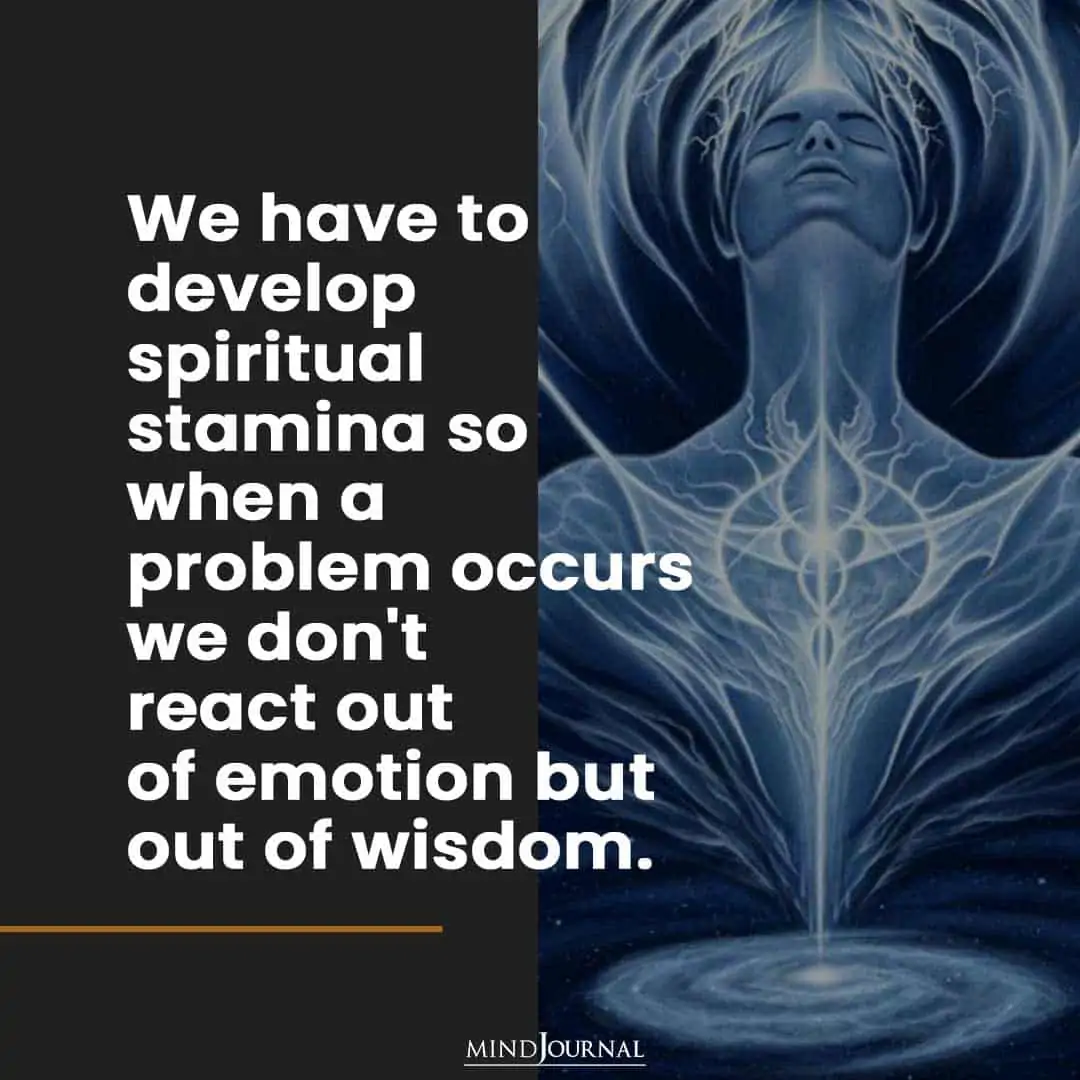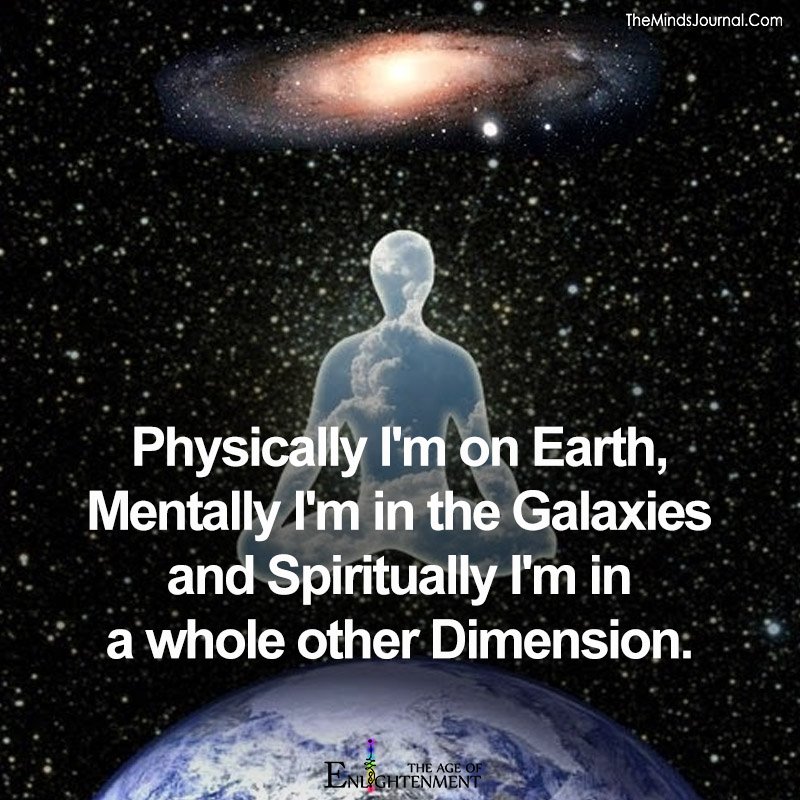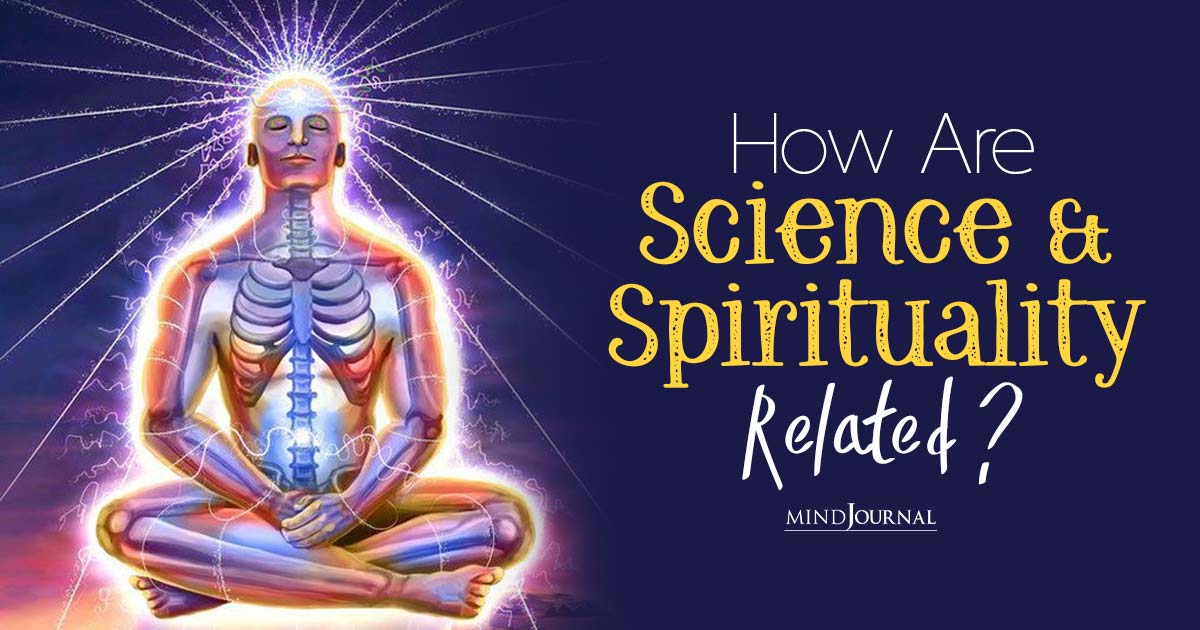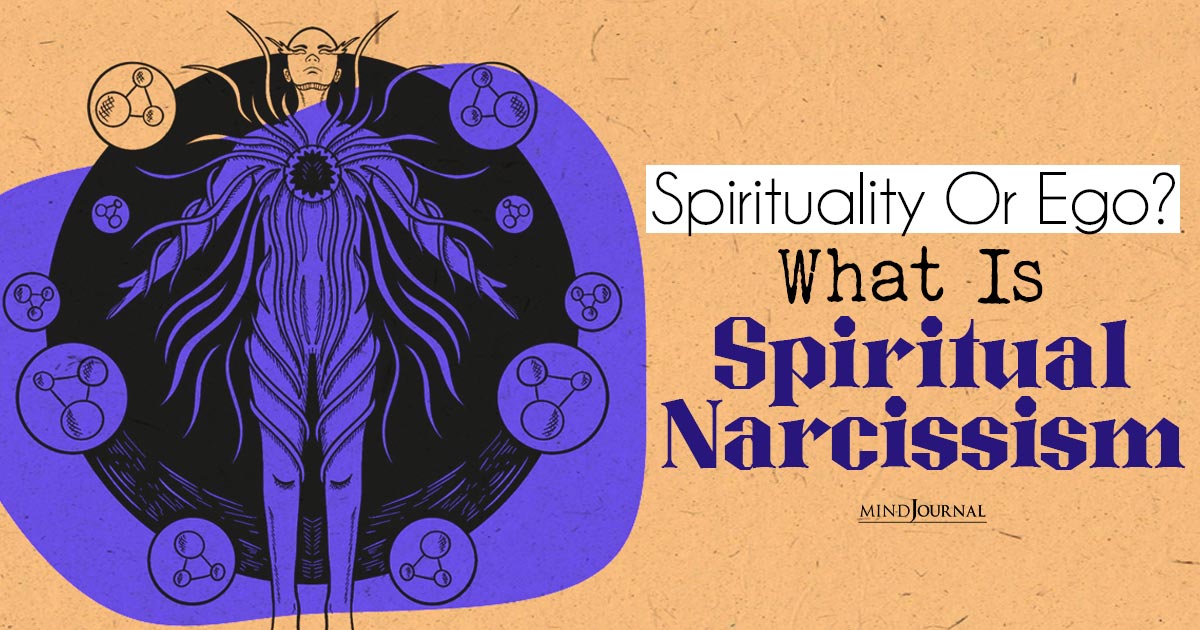Are spirituality and science two separate worlds that have nothing to do with each other? Or can they be complementary? Let’s explore the fascinating topic of how are science and spirituality related, and how they can work together to provide a more complete understanding of the world around us.
Spirituality and science
Throughout the ages, humanity has sought to understand the mysteries of the universe. Science and spirituality are two approaches to understanding the world, and they have often been considered as polar opposites.
Science is based on empirical evidence, and spirituality is based on faith. However, there is a growing recognition that spirituality and science are not mutually exclusive. In fact, they are complementary, and each has something to offer the other. However, for most of us it can still be difficult to understand how are science and spirituality related.
But before we can explore the science of spirituality, let us understand what spirituality and science actually mean in the simplest sense.
Related: Navigating Modern Spirituality: A Guide To Finding Your Spiritual Path
What is spirituality?
Spirituality is commonly linked with religion, but its scope extends beyond that. It’s a diverse concept encompassing various beliefs and practices.
At its core, spirituality is about connecting with something greater than oneself. It can involve a sense of awe and wonder at the natural world, a belief in a higher power, or a desire for personal growth and transformation.
Spirituality can take many forms, from prayer and meditation to yoga and tai chi. It can involve participation in a religious community or a personal quest for meaning and purpose.
Whatever form it takes, spirituality is about connecting with something beyond the material world.

What is science?
Science is a systematic approach to understanding the natural world. It involves observation, experimentation, and the formulation of theories and hypotheses. Science seeks to explain the world around us in a way that is objective and testable.
Science has been incredibly successful in explaining many aspects of the natural world, from the behavior of subatomic particles to the evolution of life on Earth. It has led to countless technological advances and has transformed the way we live our lives.
Now that we know what spirituality and science are, let’s find out how are science and spirituality related.
How are science and spirituality related?
On the surface, spirituality and science may seem like they have little in common. Science focuses on facts, while spirituality is based on belief and faith. But both science and spirituality are related in multiple ways. Let’s take a look.
1. Understanding the world
Both science and spirituality seek to understand the world around us. Science aims to comprehend the natural world through observation and experimentation, whereas spirituality seeks to explore the spiritual and metaphysical dimensions.
2. Exploring the unknown
Both science and spirituality acknowledge that there is much that we do not know. Science recognizes that our understanding of the natural world is constantly evolving, and that there is much that we have yet to discover.
Spirituality acknowledges that there are mysteries beyond our understanding, and that there may be aspects of the world that are beyond our comprehension.
3. Instilling a sense of awe and wonder
Both science and spirituality can lead to a sense of awe and wonder. Science can reveal the beauty and complexity of the natural world, while spirituality can provide a sense of connection to something greater than ourselves.
Now that we have some idea about how are science and spirituality related, let’s delve into the science of spirituality.
The science of spirituality
The relationship between science and spirituality is perhaps best exemplified by the emerging field of the science of spirituality. This field seeks to understand the ways in which spirituality can affect our physical, mental, and emotional well-being.
Studies have shown that spiritual practices such as meditation, prayer, and yoga can have a range of positive effects on the body and mind. For example, meditation has been shown to reduce stress and anxiety, improve cognitive function, and even lower blood pressure.
Related: What Is Spiritual Ecology? How Our Relationship With Nature Shapes Our Spiritual Beliefs
One of the key findings of the science of spirituality is that there are similarities between the brain states associated with spiritual experiences and those associated with certain psychological states.
For example, studies have shown that the brain activity of experienced meditators is similar to that of individuals in a state of flow, where they are completely absorbed in an activity and lose track of time.
This suggests that spiritual experiences may be a natural part of the human experience, and that there may be underlying neurological mechanisms that contribute to these experiences.
One 2015 study suggests that “In general, it appears that when defined and assessed quantitatively, spirituality may be viewed as a viable concept which empirically behaves in a similar manner across cultures.” The researchers add that it is best to consider spirituality as a “multidimensional construct made up of related but unique components.”
Scientific theories that explain spirituality
When exploring how are science and spirituality related, it is crucial that we explore some scientific concepts that attempt to explain spirituality.
While spirituality is a complex and multifaceted concept that can vary significantly across cultures and belief systems, some scientific theories attempt to explain aspects of spiritual experiences and beliefs.
It’s important to note that spirituality often lies beyond the scope of traditional scientific investigation due to its subjective and personal nature. Nonetheless, here are a few theories that have been proposed to account for certain aspects of spirituality:
1. Neurotheology
This field explores the neural basis of religious and spiritual experiences. It suggests that spiritual experiences are a result of the brain’s neural activity and can be associated with specific brain regions and neurotransmitters.
Neurotheological studies often examine the effects of meditation, prayer, and other spiritual practices on brain activity.
2. Transpersonal psychology
This psychological perspective focuses on the study of spiritual experiences, personal growth, and transcendence.
It acknowledges that spiritual experiences can play a significant role in an individual’s well-being and personal development.
3. Quantum consciousness
Some proponents of this idea suggest that consciousness and spirituality can be understood through quantum physics.
They propose that quantum phenomena might underlie consciousness and enable connections beyond the physical realm, possibly explaining certain spiritual experiences.
4. Evolutionary psychology
This theory looks at spirituality from an evolutionary perspective. Some researchers argue that human tendencies toward spiritual beliefs and practices might have evolved as adaptive mechanisms to promote social cohesion, reduce anxiety, and help individuals cope with existential questions.
5. Psychological integration models
These models propose that spirituality and religious beliefs can contribute to psychological well-being when they are integrated positively into an individual’s life and worldview.
They emphasize the importance of harmony between spiritual beliefs and other aspects of a person’s identity.
6. Meaning-making theory
This theory suggests that spirituality arises from the human need to find meaning and purpose in life. Spiritual beliefs and practices can provide a framework for understanding life events, mortality, and the broader context of existence.
It’s essential to recognize that these theories do not provide a complete or universally accepted explanation of spirituality. Spiritual experiences are highly personal and often transcend the scope of scientific inquiry.
These theories can help to explain how are science and spirituality related. However, while scientific theories can offer insights into certain aspects of spirituality, they may not encompass the full richness and diversity of spiritual beliefs and experiences.
Related: The Summit Of Spirituality: The Spiritual Significance Of The Himalayas

Spiritual practices studied in the science of spirituality
Over the years, several spiritual practices have been studied in the context of the science of spirituality. These practices have garnered scientific interest due to their potential effects on physical and mental well-being.
Here are some specific spiritual practices that have been researched:
1. Meditation
Meditation involves various techniques aimed at focusing the mind and achieving a state of heightened awareness and inner peace. Mindfulness meditation, loving-kindness meditation, and transcendental meditation are some of the commonly studied forms.
Research has shown that meditation can have positive effects on stress reduction, emotional regulation, attention, and even changes in brain structure.
2. Prayer
Prayer is a form of communication with a higher power or divine entity. Studies on prayer have explored its effects on well-being, coping with illness, and perceived social support.
Some research has shown that prayer can be associated with improved mental health and increased feelings of comfort and hope.
3. Yoga
Yoga is a mind-body practice that originated in ancient India. It involves physical postures, breathing exercises, and meditation. Studies have demonstrated that yoga can have beneficial effects on stress reduction, flexibility, balance, and overall well-being.
4. Gratitude
Gratitude practices involve consciously cultivating feelings of thankfulness and appreciation. Gratitude journaling, where individuals write down things they are grateful for, is a common form of this practice.
Research has shown that gratitude practices can enhance well-being, increase positive emotions, and reduce symptoms of depression.
5. Labyrinth walking
Walking meditation in a labyrinth is a spiritual practice that involves following a winding path to a center point and then back out. This practice has been studied for its potential benefits in promoting relaxation, focus, and mindfulness.
6. Mind-body healing techniques
Practices like reiki, healing touch, and therapeutic touch involve the use of touch or energy transfer for healing purposes. Studies have explored the effects of these techniques on reducing stress, anxiety, and pain perception.
7. Transpersonal breathwork
Transpersonal breathwork is a type of experiential practice that combines controlled breathing with elements of psychotherapy and spirituality. It is often used for personal growth and self-exploration. Some studies have looked at the psychological effects of this practice.
8. Rituals and ceremonies
Various rituals and ceremonies from different spiritual traditions have been examined for their psychological and emotional impacts. These practices can range from structured religious ceremonies to more informal personal rituals.
It’s important to note that while scientific research has explored the effects of these practices, spirituality is a highly individual and subjective experience. The benefits or outcomes of these practices may vary widely from person to person.
Additionally, the studies in the field of spirituality often face methodological challenges due to the complexity and diversity of spiritual experiences. Nonetheless, these practices continue to be of interest to researchers and practitioners interested in the intersection of spirituality and science.
Now let us dive in deeper to explore some more fascinating aspects that help to define how are science and spirituality related.
The cosmic perspective
Modern science reveals a universe of extraordinary grandeur and complexity – with galaxies billions of light years across, mysterious dark matter and endless cycles of stellar birth and death. At the atomic level, scientists see a dizzying whirl of particles that appear destined to collide.
Spirituality provides a cosmic perspective on our place within this grand scheme. How are science and spirituality related in this broader context? Spirituality reminds us that there is more to the universe than mere physical matter and forces.
There is a deeper interconnectedness and intelligence that underpins existence itself. Science maps out the specifics, while spirituality points to the vast mystery of being.
The origins of life
Science has made great strides in understanding the remarkable process by which non-living chemicals assembled themselves into the first self-replicating molecules of life. However, significant mysteries remain – such as how did life emerge from nonliving matter?
Spiritual understanding offers a perspective on life’s ultimate origin. It suggests that the creative impulse of spirit birthed forth this physical world of form, giving rise to life’s code and consciousness within a subtle yet intelligent matrix.
Science examines the mechanisms within that matrix, while spirituality points to the originating impulse behind it.
Related: Psychedelics And Spirituality: Can Altered States of Consciousness Lead To Spiritual Awakening?

The human mind
Neuroscience is mapping the activity within our brains with ever greater precision, showing which neural circuits activate during various thoughts, emotions and perceptions.
Yet spirituality recognizes a deeper dimension to mind – the inexpressible consciousness which simply beholds and animates the brain’s electrical symphony.
How are science and spirituality related here? Science can locate consciousness within the brain, but cannot explain its irreducible subjectivity and intelligence. Spirituality suggests that consciousness transcends and permeates the physical realm.
Infinite potential
Spirituality sees an infinite potential underlying all of existence, imbuing each of us with limitless creativity and purpose. However, science generally sees a world of finite resources and closing evolutionary windows.
But new scientific fields like quantum physics and consciousness studies point to a universe filled with boundless wonder and opportunity. Here spirituality and science converge – revealing an exhilarating vastness within the tiny and the immense, the now and the never-ending.
So how are science and spirituality related? Let’s discover some more important facets.
How science and spirituality are integrated in real-world contexts
The integration of science and spirituality has been explored and applied in various real-world contexts. While these examples may not represent a consensus or universally accepted approach, they demonstrate how some individuals and organizations have sought to combine scientific understanding with spiritual perspectives:
1. Mindfulness-based stress reduction (MBSR)
MBSR is a program that integrates mindfulness meditation practices with insights from psychology and neuroscience. It was developed by Jon Kabat-Zinn in the late 1970s.
MBSR combines mindfulness practices derived from Buddhist meditation with scientific principles to help individuals manage stress, anxiety, and pain. It has been widely adopted in medical settings and therapeutic interventions.
2. Neurotheology research
As mentioned earlier, neurotheology is a field that investigates the neural basis of religious and spiritual experiences. Researchers in this area use brain imaging techniques and other scientific methods to study the neurological correlates of meditation, prayer, and other spiritual practices.
By exploring the neural underpinnings of spiritual experiences, they aim to better understand the brain’s role in these phenomena.
3. Spiritual ecology
This movement seeks to bridge ecological and spiritual perspectives to promote environmental sustainability and conservation.
It emphasizes the interconnectedness of all living beings and draws on spiritual traditions to foster a deeper sense of responsibility and reverence for nature.
4. Integrative medicine
Integrative medicine combines conventional medical treatments with complementary and alternative therapies, including practices rooted in spirituality such as meditation, yoga, and energy healing.
Integrative medicine practitioners aim to address the physical, emotional, and spiritual aspects of health and healing.
5. Positive psychology
Positive psychology is a scientific approach that focuses on human flourishing and well-being. While not explicitly spiritual, some aspects of positive psychology, such as the study of meaning, purpose, and character strengths, align with spiritual concepts and values.
6. Holistic wellness centers
Some wellness centers and retreats offer programs that integrate scientific knowledge with spiritual practices. These programs may include workshops on meditation, yoga, nutrition, and psychological counseling to address physical, emotional, and spiritual well-being.
7. Interfaith dialogue and understanding
In various religious and spiritual communities, there are efforts to engage in interfaith dialogue, where individuals from different belief systems come together to promote understanding, tolerance, and cooperation.
These dialogues often involve sharing spiritual insights and practices while respecting scientific and cultural diversity.
It’s important to acknowledge that the integration of science and spirituality can be a complex and delicate endeavor, as it involves navigating diverse perspectives and worldviews.
Additionally, while some approaches attempt to find common ground between science and spirituality, others may maintain a clear distinction between the two domains. The degree of integration and the specific contexts can vary widely, reflecting the diversity of human beliefs and approaches to understanding the world.
The limits of spirituality and science
When exploring how are science and spirituality related, we also need to take a look at some of the limitations.
While science and spirituality can complement each other, it is important to recognize their limits. Science is limited to the study of the natural world, and cannot provide answers to questions about the spiritual or metaphysical aspects of the world.
Similarly, spirituality is based on personal experience and faith, and cannot be tested or proven in the same way that scientific theories can.
This does not mean that spirituality is invalid, but it does mean that we must approach it with a different set of tools and methods than we use for science.
Related: Thrive In Cosmic Vibrations: Why You Must Start Chanting Mantras According To Science
Takeaway

The relationship between science and spirituality is complex and multifaceted. While they may seem like polar opposites, they are both approaches to understanding the world around us. Science’s pursuit is to grasp the natural world through observation and experimentation, while spirituality delves into the spiritual and metaphysical realms.
The emerging field of the science of spirituality highlights the ways in which these two approaches can complement each other. By studying the effects of spiritual practices on the body and mind, we can gain a deeper understanding of the ways in which spirituality can contribute to our well-being.
Ultimately, the relationship between science and spirituality is not one of conflict, but of complementarity. Integrating science and spirituality can promote a more holistic understanding of complex issues, foster open-mindedness, and encourage the exploration of new possibilities for personal and collective growth.
By embracing both approaches, we can gain a deeper appreciation of the complexity and beauty of the world around us, and find meaning and purpose in our lives.
Frequently Asked Questions (FAQs):
How are spirituality and science related?
Spirituality and science are related through their common pursuit of understanding the mysteries of existence and the universe.
When science meets spirituality?
When science meets spirituality, it explores the intersection of empirical knowledge and subjective experiences, enriching our understanding of reality.
Can science and spirituality be combined?
Yes, science and spirituality can be combined, fostering a holistic perspective that acknowledges both empirical evidence and inner wisdom.









Leave a Reply
You must be logged in to post a comment.